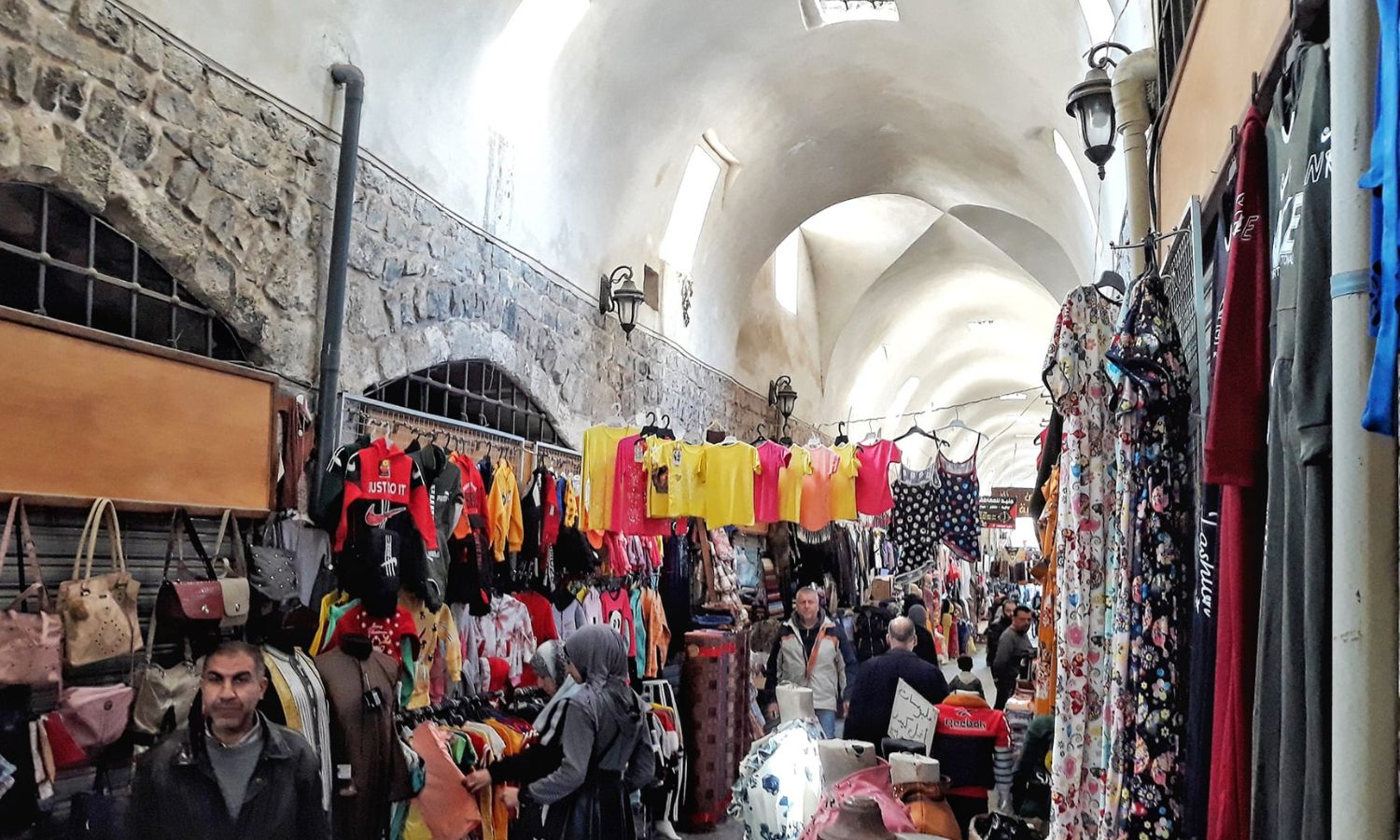



The prices of several goods in Homs province, central Syria, have increased due to the Israeli escalation in Lebanon.
The growing demand for goods in Lebanon, the escalation, and the Israeli airstrikes on border crossings, especially the illegal crossings between western Homs and Lebanese territory, have partially halted the smuggling of goods from Lebanon, most notably gas and gasoline.
According to a tour conducted by a reporter from Enab Baladi in the markets of Homs, the price of a liter of gasoline reached 22,000 Syrian pounds (about $1.5), while it was sold for 15,000 pounds ($1) in the black market.
The price of a gas cylinder (9 kilograms) reached 275,000 pounds ($18.6), whereas it was sold before the war in Lebanon for 190,000 pounds ($12.88).
The transit movement of other goods resumed after being halted for several days due to the escalation, especially electronic devices such as phones, their accessories, televisions, and solar panels; however, their prices rose compared to before the escalation due to increased transportation costs from Lebanon to Syria.
As for food items and vegetables, their prices remained stable.
Regarding rent prices, the state of displacement from Lebanon and the return of Syrians did not affect them.
Monthly rent prices in Homs range between 400,000 in popular neighborhoods like Deir Baalba and al-Bayyada (where destruction still dominates the scene), and it rises in upscale neighborhoods like al-Inshaat, al-Hamra, and al-Ghouta to reach around 2 million pounds per month.
The number of families coming from Lebanon and hosted by local communities in Homs and its countryside reached eight thousand families (38,250 individuals), most of whom are Lebanese, as of the 14th of this month, according to a report from the UN High Commissioner for Refugees (UNHCR).
Syria and Lebanon are connected by six official crossings: Jdeidet Yabous in rural Damascus, and the crossings of Jousiyeh, Dabousiyeh, Matraba, Tal Kalakh in Homs, and al-Arida in Tartus.
As for the unofficial crossings, there are 17 crossings controlled by local tribes in the area, according to Asharq Al-Awsat newspaper, noting that these crossings are outside the security oversight of both Lebanese and Syrian authorities.
Four of the six official crossings between Syria and Lebanon are located in Homs province, in addition to many illegal crossings, due to the province’s proximity to Lebanon along its western border and the overlap of villages and towns between Syria and Lebanon.
These crossings are active in human smuggling from Syria to Lebanon (and currently the reverse) and in the smuggling of food, consumer goods, cigarettes, gas, and even stolen cars.
According to Asharq Al-Awsat, these crossings are far from the authority of Syrian security, as their residents are Lebanese.
The crossings were named after the tribes residing there (Alam crossing, Haj Hassan crossing, Nasser al-Din crossing… and others), according to the newspaper.
A reporter from Enab Baladi mentioned that there are many smuggling crossings in the areas of al-Qusayr and Tal Kalakh due to the Lebanese-Syrian border extending for about 375 kilometers.
Widespread areas of this border are controlled by local armed groups affiliated with the Fourth Division or Military Intelligence from the Syrian side.
Dabousiyeh crossing, opened in 2007, is a bridge crossing that links the village of Aboudiya in Akkar, Lebanon, with the village of Dabousiyeh, and is used for the movement of goods and travelers.
Jousiyeh crossing connects the town of Jousiyeh in the al-Qusayr area with the Lebanese villages of al-Qaa, traversing the main road between al- Qusayr in Homs province and al-Qaa villages; it was closed in 2012 when opposition factions took control of the area and reopened in 2017.
Tal Kalakh crossing, established in 2009, connects the city of Tal Kalakh with Wadi Khaled, located north of Lebanon in Akkar province, which is a mountainous rural area.
Matraba crossing is a new crossing opened in 2022, linking al-Qusayr to the Hermel area in Lebanon.
if you think the article contain wrong information or you have additional details Send Correction